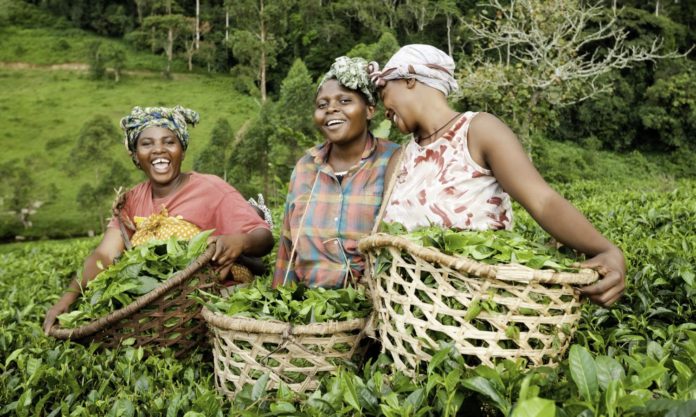Women in Africa’s agriculture sector have historically faced marginalisation in the management of crucial assets and resources, especially when it comes to land ownership. According to statistics from the World Bank, less than 13% of African women have sole ownership of land, while the figure for African men is 36%. Likewise, women often engage in agricultural production under unfavourable conditions, whether in cultivating less profitable crops, working irregular hours or shouldering a disproportionate burden of unpaid domestic work. Gender disparities are further exacerbated by low literacy levels among rural women farmers, which hampers effective knowledge sharing. These factors manifest in a 24% gender gap in land productivity between farms managed by females and males.
Gender equality holds significance beyond boosting productivity and narrowing Africa’s yield gap – the 90% difference between average yields and the most productive ones. It also plays a crucial role in financially empowering women within the farming industry. For instance, even though women Development Goals, highlighting the imperative for comprehensive policy support and strategic investment. A proactive stance is needed in formulating gender-responsive policies tailored to address the unique challenges encountered by women in the agriculture sector. Among
policy documents related to agriculture and rural development across 68 countries, 75% acknowledge the roles and challenges faced by women, 19% explicitly incorporate gender equality in agriculture as a defined policy objective and 13% actively promote the participation of rural women in the policy formulation cycle. This trend persists despite compelling data indicating the positive outcomes associated with women’s increased involvement.
For example, the UN FAO report demonstrates that initiatives that empower women yield greater benefits than those simply integrating gender considerations. The report argues that if development interventions targeting women’s empowerment were to benefit half of the smallscale producers, it could substantially increase the incomes of an additional 58m individuals and bolster the resilience of a further 235m people. constitute half of the agricultural labour force in several countries, they earn 18.4% less on average than their male counterparts in wage-based agricultural employment. Similarly, females engaged in farming are disproportionately vulnerable, with 22% of women in off-farm roles having lost their jobs on a global scale during the Covid-19 pandemic, in contrast to 2% of men. The 2023 “Status of Rural Women in Agri-food Systems Report” by the UN FAO emphasises that efforts aimed at promoting gender equality, female empowerment and more sustainable agri-food systems must go beyond addressing gaps related to assets and technology to confront the issue of unpaid domestic labour, enhance educational opportunities and foster resilience among women. Eliminating the gender gap in farm productivity and wage disparities in agrifood systems could lead to a 1% increase in global GDP, equivalent to nearly $1trn. This shift would decrease global food insecurity by approximately 2%, strengthening food security for 45m individuals.
Women’s empowerment and gender equality are explicit focal points of the UN Sustainable Development Goals, highlighting the imperative for comprehensive policy support and strategic investment. A proactive stance is needed in formulating gender-responsive policies tailored to address the unique challenges encountered by women in the agriculture sector. Among policy documents related to agriculture and rural development across 68 countries, 75% acknowledge the roles and challenges faced by women, 19% explicitly incorporate gender equality in agriculture as a defined policy objective and 13% actively promote the participation of rural women in thepolicy formulation cycle. This trend persists despite compelling data indicating the positive outcomes associated with women’s increased involvement. For example, the UN FAO report demonstrates that initiatives that empower women yield greater benefits than those simply integrating gender considerations. The report argues that if development interventions targeting women’s empowerment were to benefit half of the smallscale producers, it could substantially increase the incomes of an additional 58m individuals and bolster the resilience of a further 235m people.


